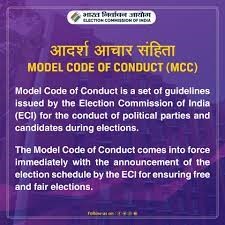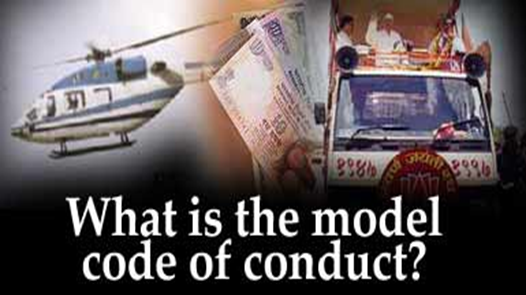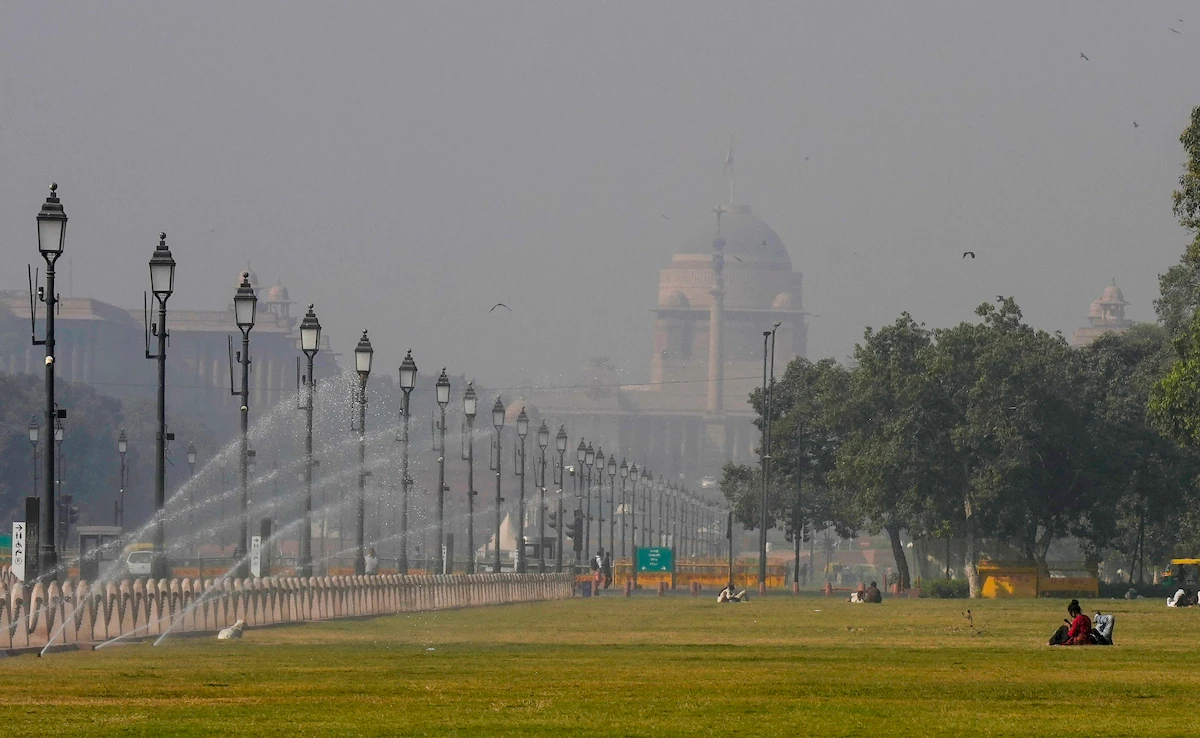- Courses
- GS Full Course 1 Year
- GS Full Course 2 Year
- GS Full Course 3 Year
- GS Full Course Till Selection
- Answer Alpha: Mains 2025 Mentorship
- MEP (Mains Enrichment Programme) Data, Facts
- Essay Target – 150+ Marks
- Online Program
- GS Recorded Course
- NCERT- First Ladder
- Polity
- Geography
- Economy
- Ancient, Medieval and Art & Culture AMAC
- Modern India, Post Independence & World History
- Environment
- Governance
- Science & Technology
- International Relations and Internal Security
- Disaster Management
- Ethics
- Current Affairs
- Indian Society and Social Issue
- CSAT
- 5 LAYERED ARJUNA Mentorship
- Public Administration Optional
- ABOUT US
- OUR TOPPERS
- TEST SERIES
- FREE STUDY MATERIAL
- VIDEOS
- CONTACT US
Model Code of Conduct
Model Code of Conduct


Latest Context
Political parties are exchanging accusations of hate speech against each other as the Karnataka Assembly Elections are about to take place. Consequently, the parties have approached the Election Commission of India regarding violations of the Model Code of Conduct (MCC).
Model of Conduct
- Conceptual Framework: The MCC is a set of guidelines issued by the ECI to regularize political parties and candidates prior to elections. By issuing guidelines in the form of a Model of Conduct, the Election Commission of India ensures free and fair elections as per Article 324 of the Constitution. This article gives EC the power to supervise and conduct free and fair elections to the Parliament and State Legislatures. The MCC is employed by the EC from the date on which the election schedule is announced until the date of the result announcement.
- Evolution: Model Code of Conduct came into existence during the Assembly elections of Kerala in 1960 when the State administration prepared a ‘Code of Conduct’ for political actors. Subsequently, the ECI circulated the code to all recognized political parties and State governments during the Lok Sabha elections in 1962 and it was wholeheartedly followed. The EC decided to enforce the MCC more strictly in 1991 by observing the repeated flouting of the elections norms and rampant corruption to affect free and fair elections.
MCC for Political Parties and Candidates:
- Prohibitions related to Caste, Communal, and False Accusations: As per the ECI, criticism of political parties must be restricted to their policies and programs, past record, and work. Activities like using caste and communal feelings to secure votes, criticizing candidates on the basis of unverified reports, bribing or intimidating of voters, etc. are strictly prohibited.
- Information to Police: Parties must inform the local police authorities of the venue and time of any meeting in time to enable the police so that adequate security arrangements can be made effectively.
- Prohibitions regarding Processions: If two or more candidates plan processions on the same route, the political parties must share information in advance to ensure that the processions do not clash. Furthermore, carrying and burning effigies of the members of other political parties is prohibited.
- Provisions relating to Polling Booths: Only voters and those having a valid pass from the EC should be allowed to enter polling booths. Suitable badges or identity cards should be given to all authorized party workers at polling booths. Identity slips supplied by authorized party workers to voters should be on plain (white) paper and shall not contain any symbol, name of the candidate, or the name of the party.
- Appointment of Observers: The EC will appoint observers for effective and efficient management of free and fair elections at the field level.
- Provisions relating to the Ruling Party: To regulate the conduct of the party in power, the MCC incorporated certain restrictions in 1979. Ministers must not use their official visits for election work or use official machinery for the same. Further, the party must restrict itself from advertising at the cost of the public exchequer. It should not use official mass media for publicity on achievements to improve chances of victory in the elections. Another crucial point is that ministers and other authorities must not announce any financial grants, or promise any construction of roads, or provision of drinking water, In addition, other parties should be allowed to use public spaces and rest houses. Ruling Party must not be monopolized these public places and rest houses.
Election Manifestos
-
Guidelines: The election manifesto of a political party shall not consist of anything against the ideals and principles enshrined in the Constitution. Political parties should avoid making any kind of promises that could seem to impair the purity of the election process or exert undue influence on voters. Manifestos should reflect the rationale for promises and broadly and most importantly indicate the ways and means to meet the financial requirements for it. Section 126 of the Representation of the People Act 1951 prescribed that manifestos shall not be released during the prohibitory period for single or multi-phase elections.
Recent Additions to the MCC
-
Constraints on Opinion and Exit Polls: Recently, EC banned the opinion polls and exit polls during the period notified by it to ensure free and fair elections.
-
Prohibition of an advertisement on Polling Day: EC also banned advertisements in print media on polling day and one day prior to it unless the contents are pre-certified by screening committees.
-
Restrictions related to Political Functionaries: It also created the restriction on government advertisements featuring political functionaries during the election period.
Legal Enforceability of MCC
-
Strict Implementation of Laws: Though the MCC does not have any statutory backing but still it has gathered strength in the past decade because of its strict enforcement by the EC. Certain provisions of the MCC may be enforced by invoking corresponding provisions related to IPC 1860, CrPC 1973, and RPA 1951 Act.
-
Suggestions of Standing Committee: In 2013, the Standing Committee on Personnel, Public Grievances, Law, and Justice recommended that it should be legally binding and it should be an integral part of the RPA 1951. However, the ECI advocates against making it legally binding. As per the EC, elections must be completed within a relatively short time or close to 45 days and judicial proceedings typically take longer. Hence, it will not be feasible to make it enforceable by law.
Criticisms of the MCC
-
Ineffective: It failed to prevent electoral malpractices like fake news, booth capturing, hate speech, money power, voter intimidation, and violence. The Election Commission of India is also challenged by new technologies and social media platforms that enable faster and wider dissemination of misinformation and propaganda.
-
Absence of Legal Enforceability: It is not a legally binding document and relies only on moral persuasion and public opinion for compliance.
-
Interference in Governmental Functioning: It imposes restrictions on policy decisions, public spending, welfare schemes, transfers, and appointments. Political Parties criticize EC for imposing MCC too early or too late which affects developmental activities.
-
Lack of Awareness: Most importantly, it is not widely known or understood by voters, candidates, parties, and government officials.

Prelims:
Q. Consider the following statements about the Election Commission of India: (2017)
1. The Election Commission of India is a five-member body.
2. Union Ministry of Home Affairs decides the election schedule for the conduct of both general elections and bye-elections.
3. The Election Commission resolves the disputes relating to splits/mergers of recognized political parties.
Which of the statements given above is/are correct?
(a) 1 and 2 only
(b) 2 only
(c) 2 and 3 only
(d) 3 only
Ans: (d)
Mains:
Q. Discuss the role of the Election Commission of India in light of the evolution of the Model Code of Conduct. (2022)



